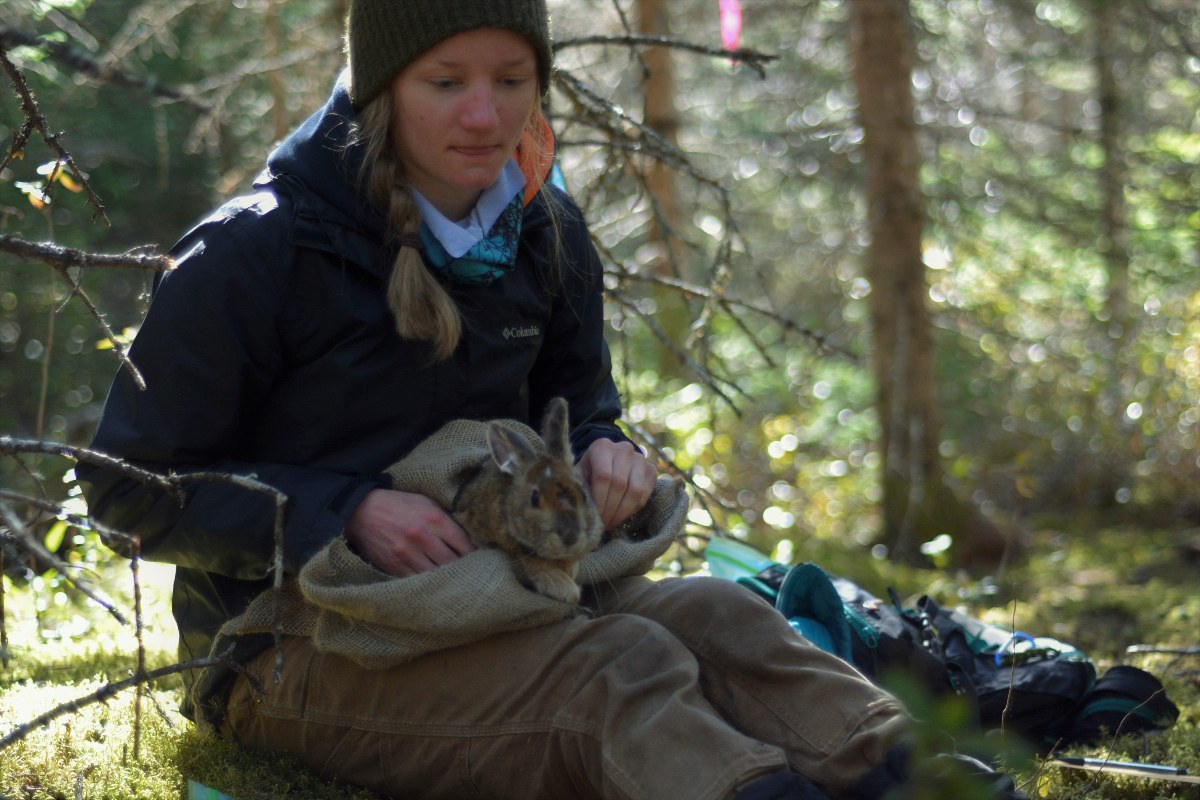Graduate student researching how climate change and its impact on nutrient availability may affect the snowshoe hare
Donna McKinnon - 12 January 2023
The health and success of snowshoe hare populations are dependent on nutrient availability, but the complexities of their diets, and the environmental pressures placed on these nutritional resources are not fully understood. Biological Sciences PhD student Juliana Balluffi-Fry’s Yukon-based research is filling in these gaps, providing insight into how climate change is affecting this iconic species of the boreal forest.
Awarded the prestigious 2022 Vanier Scholarship, Balluffi-Fry will use the time and resources it provides to head off into the field, and in her words, ask many more questions!
Tell me about receiving a Vanier Canada Graduate Scholarship.
I am of course extremely honoured and grateful. When I got the news, it was an emotional day. My office mate can vouch for that! I know I have worked really hard to get here, but it’s still difficult to comprehend that my thinking, writing, and research has achieved for me the same recognition as so many deserving scholars. The Vanier application process is very thorough and covers not just research but leadership action and philosophy, so I had to do a lot of reflecting. Mostly, it reminds me of my immense gratitude to the people who have looked out for me thus far, especially my mentors, and it holds me to a high level of scholarship and leadership going forward.
How will this funding support your research?
As a field biologist who works in the Yukon, having my own source of funding for three years is an outstanding advantage. It means I can head off into the field any time of year, and that’s a big asset when you study a species in such a seasonal environment. I can ask so many more questions. Outside of logistics, having financial security for the next three years is a big relief and will make it much easier to focus on my research.
Who is your supervisor?
Stan Boutin professor in the Department of Biological Sciences.
Tell me about the focus of your research.
The 10-year snowshoe hare (Lepus americanus) population cycle is a dramatic element of Canada's boreal forest. My research focuses on snowshoe hare nutritional ecology. I am trying to understand how changes in hare densities, snow conditions, and predation risk interact to affect hare nutrition, and thus how hares may respond to such environmental changes. This work, coupling population ecology and nutritional ecology, will inform our understanding of this iconic population cycle and how climate change may impact it.
What makes the University of Alberta's Faculty of Science the ideal place to do this work?
The faculty and graduate students at the U of A are notably productive overall, and the university has produced many leaders in ecology and wildlife biology. I came to the U of A because I wanted to work alongside a faculty who would inspire me and push me to do the best science possible. Also, nutrition is studied across various departments and in various contexts, from agriculture to humans, and I wanted to be at an institution where I could be exposed to many applications of nutrition. I have received a lot of help from faculty in other departments and it has been a major asset.
Are the snowshoe hares that you study the same hares that we see all over Edmonton?
No, those are white-tailed jack rabbits (Lepus townsendii). Though we call them rabbits, they are hares, and they are close relatives of snowshoe hares. Cousins maybe?
The Vaniers are awarded each year by the Natural Sciences and Engineering Research Council of Canada (NSERC). These awards equally consider achievements in academic excellence, research, and leadership, recognizing outstanding graduate students at institutions across Canada. The awards support scholars in their studies by providing $50,000 per year for three years.
